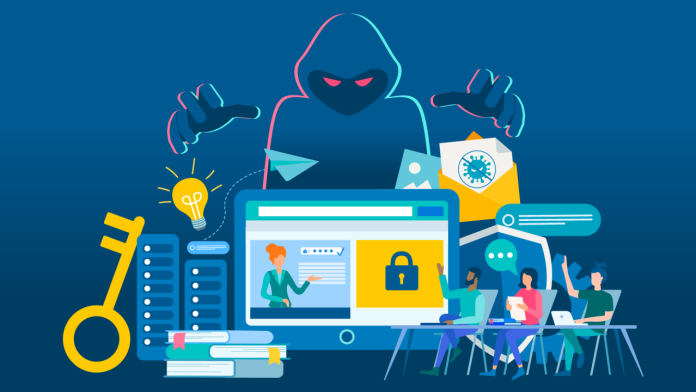Cybersecurity is now a requirement for all businesses that are of any size. The constantly evolving threat landscape means that every organization is vulnerable to cyberattacks, which is why it’s essential to develop strong security strategies. Although the field of cybersecurity may seem complicated and daunting, this post will simplify it into straightforward concepts and offer you practical strategies to secure your company.
The importance of user education is paramount.
A single of the most efficient cybersecurity strategies begins by involving your staff. Human error is usually the weakest point in any security defense. It is therefore essential to teach your employees the fundamentals of cybersecurity. Regularly conduct workshops to educate employees about the most common threats, such as the phishing email or social engineering malware.
Encourage employees to use secure unique passwords and make sure that two-factor authentication is enabled whenever it is possible. In fostering the culture of security awareness, you’ll enable your employees to identify and address the threat, dramatically decreasing the chance that successful attack.
Implement Secure Access Control
The control of who is granted access on your online assets is essential. Implementing a secure access control system can to ensure only authorized users have access to access sensitive systems and data. Begin by categorizing your data according to its importance and the sensitivity. After that, you should grant access permissions in accordance with.
Check and revise the permissions given to employees when their duties change or they quit the organization. Apply the principle of minimum privilege, which means that employees should have access to information that is required in order to do their duties. This reduces the risk of dangers posed by security breaches or insider threats.
Periodic Software Updates, Patch Management and Patch Monitoring
Older software and vulnerabilities that are not patched are the most common targets for cybercriminals. Hackers constantly look for weaknesses that could be exploited to gain access into systems. To minimize the danger, you must establish a thorough process for managing patches process. Maintain all software operating systems, and programs current with the most recent security patches.
Implement a automated patching process whenever you can to ensure prompt updates. Also, think about using tools for network scanning to find vulnerable devices and prioritize patching according to the level of vulnerability. By being active in this regard you’ll drastically lower your vulnerability to security threats.
Backup and encryption of data
Data is the heart of modern companies, which makes it a popular victim for cybersecurity. To guard your data, you should use encryption in both transit and in rest. The encryption ensures that the attacker is able to gain access the data you have stored, it will remain unreadable without the encryption key. Use secure backup tools regularly and keep backups in an distinct area.
This will allow you to retrieve your data in the event an attack by ransomware or data breaches. Check your recovery and backup procedures to make sure they are business working efficiently. Keep in mind that it’s not only about making backups, it’s about being in a position to restore your system quickly and efficiently when you need to.
Incident Response Plan
Despite your best efforts, breaches can still occur. This is why having a clearly defined incident response plan is essential. The plan should detail the steps to follow when a security issue is identified regardless of whether it’s an attack on data or malware infection or any other cyber-related security threat.
Designate roles and responsibilities for certain team members, and establish clear channels to report incidents. Review your incident response strategy by regularly conducting drills and simulations to make sure that your team is equipped to react effectively when a real threat occurs. Rapid and coordinated responses could aid in minimizing the damage caused by a cyberattack and decrease the amount of downtime.
Stay Vigilant
Continuously improving your cybersecurity protection requires being alert and proactive. Always monitor your network for unusual activity or potential security breach. Install intrusion detection and prevention systems that will detect suspicious activity in real-time. Think about using advanced technology for detection of threats like artificial intelligence and machine learning to detect and deal with new threats with greater efficiency.
Create an incident Communication Plan
Create a cybersecurity incident communications plan to communicate with your cybersecurity team. According to an expert, in case of serious security breach, transparent and clear communication with all stakeholders including partners, customers and regulators, is essential. Establishing trust through clear and timely communication is a great way to reduce the harm to your reputation as well as maintain faith in your company’s ability to respond to security breaches.
Final Thoughts
It isn’t a one-size-fits all solution and requires constant effort and ad-hoc adjustments. Follow these five essential cybersecurity strategies including informing your employees, using strong access control and prioritizing software patches and updates, implementing backups and encryption for data as well as having a clearly-defined incident response strategy will significantly increase the resilience of your company against cyber attacks.
Remember that cybersecurity is an ever-changing process. The threat landscape changes and new vulnerabilities are discovered frequently. Be aware of the newest security threats and best practices and be prepared to adapt your strategies to meet the changing needs. The bottom line is that making investments in security is a way to ensure the future success and credibility of your company, since it can help protect your sensitive information, ensures trust from customers and protect your financials.









